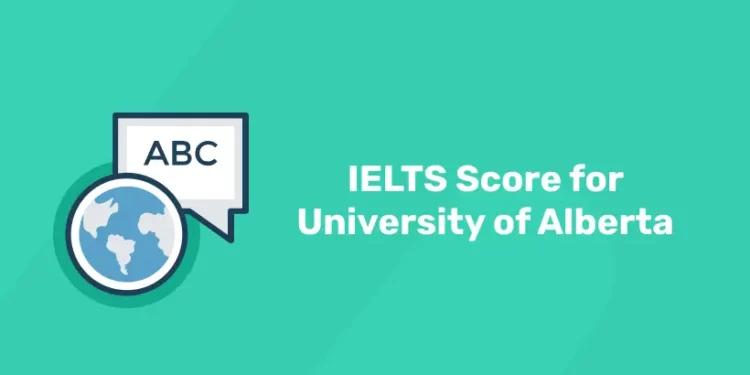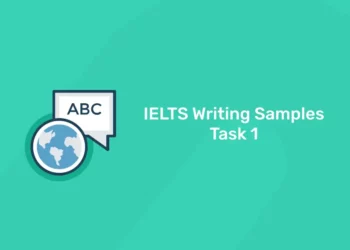Table of Contents
Introduction
For the international students aiming to join the University of Alberta, understanding the English proficiency through the IELTS (International English Language Testing System) is an essential part in the admissions process. As one of Canada’s leading research institutions, the University of Alberta requires a minimum IELTS score to ensure that students can successfully engage with the coursework, participate in the academic discussions, and fully integrate into the university’s dynamic learning environment. This standardized test evaluates your ability to listen, read, write, and speak in English, providing the university with a clear measure of your language skills.
In this blog, we’ll guide you through the essentials of the IELTS exam, including the minimum score requirements for various programs at the University of Alberta, and offer the practical tips to enhance your preparation. Whether you’re gearing up for the test or seeking to understand how your scores impact your application. Also our guide overview will equip you with the knowledge and the strategies needed to achieve your desired results and take the next step towards your academic future.
About British University of Alberta
1: Most university students ........................ on campus in their first year.
One of the top universities in the nation for research intensity is the University of Alberta, which is situated in Edmonton, Alberta, Canada. It was founded in 1908 and has since established a solid reputation for academic achievement in a variety of subjects, including engineering, the health sciences, energy, and the artificial intelligence. The institution draws a varied student body from Canada and around the world with its extensive array of undergraduate, graduate, and the professional programs. It continuously produces the ground-breaking research that tackles the global concerns because to its cutting-edge research facilities, which encourage creativity and the collaboration.
The University of Alberta is renowned for its active campus life and strong community participation in addition to its academic skills. There are many extracurricular activities, student groups, and the leadership opportunities available to the more than 40,000 students that call it home. Students get access to global exposure and the research collaborations through the university’s affiliations with institutions across the globe and its global orientation. It is a top choice for the students looking for an excellent education in a vibrant.
Master the IELTS Exam with Online Coaching – Enroll Today!
Why IELTS is Important for Admission to University of Alberta
IELTS (International English Language Testing System) is important for the admission to the University of Alberta because it serves as a standardized measure of English language proficiency. Since English is the primary language of instruction at the university, applicants, particularly the international students from non-English-speaking countries, are required to show that they possess the necessary language skills to succeed academically. IELTS assesses the essential language components such as listening, reading, writing, and speaking, ensuring that students can effectively engage with the course material, communicate with the peers, and participate in the academic discussions.
For many programs at the University of Alberta, a minimum IELTS score is a mandatory requirement for the admission. Meeting the IELTS criteria helps the university maintain a high standard of education, ensuring that students are well-prepared for the expressive demands of their coursework. This not only aids in their academic success but also enhances their overall learning experience by allowing them to fully integrate into the university’s diverse community.
Minimum IELTS Score Requirement for University of Alberta
The University of Alberta’s IELTS score requirements for the admission guarantee that prospective international students possess the English language skills to thrive in an academic setting where English is the primary language.
The Overall Band Score:
For both the undergraduate and the graduate programs, the University of Alberta typically requires a minimum overall IELTS Academic band score of 6.5. This score shows a high command of the English language and the capacity to understand the challenging language assignments like debates, academic readings, and lectures. It dshows that the learner is capable of doing well in a classroom.
Minimum Scores for Each Section:
A minimum score of 6.0 in each of the four IELTS components—listening, reading, writing, and speaking—must be obtained by the applicants in addition to their total score. This guarantees that kids have well-rounded language abilities in all domains required for the success in the classroom:
Listening: Understanding the spoken information in lectures and the group discussions.
Reading: Understand the academic texts, research papers, and the exam questions.
Writing: Writing essays, reports, and assignments with clarity and the academic accuracy.
Speaking: Participating in seminars, presentations, and the one-on-one discussions with the professors and peers.
Program-Specific Requirements:
Some programs may have higher IELTS score requirements, particularly the graduate degrees (e.g., law, medicine, or engineering). Better scores in particular parts or an overall band score of 7.0 or 7.5 may be necessary for enrollment in some competitive programs. To be sure they meet any additional requirements, the applicants should review the specific admission requirements of the program they are interested in.
IELTS Score Validity:
The IELTS test results must be less than two years old in order for them to be valid at the time of application. This guarantees that the candidate has up-to-date and current English competence. The applicant might need to retake the IELTS exam in order to meet the admission requirements if the scores are more than two years old.
Alternative English Proficiency Tests:
The University of Alberta may accept other English language competence tests, such as the TOEFL or Pearson Test of English (PTE), even though IELTS is typically required. But because it evaluates every language ability, IELTS is still regarded as the gold standard.
IELTS Score Validity and Application Process
Here are the key steps in the application process when submitting the IELTS scores to the University of Alberta:
Step1: Register for the IELTS:
First, register for the IELTS Academic test through the official test centers or online. Make sure to book the test well in advance to avoid delays in your application process.
Step2: Take the IELTS Test:
Complete the all four sections of the IELTS test (Listening, Reading, Writing, and Speaking). After your test, you will receive an overall band score and the individual scores for each section.
Step3: Submit Your Application to the University of Alberta:
When applying to the University of Alberta (the undergraduate, graduate, or professional programs), you will need to fill out the university’s online application form and then, provide the required documents. Be sure to indicate that you are submitting an IELTS score as proof of your English proficiency.
Step4: Submit IELTS Scores:
To submit your IELTS scores to the University of Alberta, you can request that the official IELTS Test Report Form (TRF) be sent directly to the university. Most of the test centers offer the option to send your scores electronically to the institution.
You will need to provide the university’s official name and address, or select the University of Alberta from the list of institutions if submitting electronically.
Step5: Verify the Submission:
Once the University of Alberta receives your IELTS score, they will verify it as part of the application review process. Make sure that your scores meet or exceed the minimum requirements for your program.
Step6: Await Admission Decision:
After submitting your IELTS scores and other required documents, the university will assess your application. Meeting the IELTS requirements does not guarantee the admission, as other factors such as the academic records and program capacity are also considered.
By ensuring that your IELTS score is valid and meets the required thresholds, you can strengthen your application and then, enhance your chances of gaining admission to the University of Alberta.
Master the IELTS Exam with Online Coaching – Enroll Today!
IELTS Preparation Tips for University of Alberta Applicants
Preparing for the IELTS exam is important for the international students applying to the University of Alberta. A strong IELTS score will show your English proficiency and increase your chances of admission. Here are some effective tips to help you prepare for the IELTS:
1. Understand the Test Format
- The IELTS Academic test assesses the four skills ie, Listening, Reading, Writing, and Speaking. Knowing the structure of the each section helps you manage time effectively and reduces the anxiety.
- Familiarize yourself with the types of questions you will asked in the each section by reviewing the sample test papers or taking the practice tests. This way, you’ll know what to expect on the test day.
2. Identify Your Target Score
- The University of Alberta generally requires a minimum overall IELTS band score of 6.5 with no less than 6.0 in the each section. However, some programs may have the higher requirements, so check the specific scores for your chosen program.
- Set a target score based on the program requirements and then, focus your preparation accordingly.
3. Practice the Listening and Speaking Skills
- For the Listening section, practice the listening to a variety of English accents (British, American, Canadian, etc.), as the audio recordings in the IELTS can feature the different accents.
- For the Speaking section, practice the speaking English daily. Focus on the fluency, pronunciation, and coherence. Engage in the conversations with native or fluent English speakers, or join the English language groups to improve your skills.
4. Enhance Reading and Writing Skills
- For the Reading section, practice the reading academic articles, newspapers, and the journals. Pay attention to understanding the main idea, details, and the overall structure of the texts.
- For the Writing section, practice the writing essays and reports within the 250-word and 150-word limits. Focus on the structure, clarity, grammar, and using a formal academic tone. Try timing yourself to ensure you can complete tasks within the given time frame (60 minutes for two tasks).
5. Take Full-Length Practice Tests
- The Full-length practice tests under the time conditions simulate the actual IELTS exam and improve your stamina for the test day.
- These tests help you become familiar with the pacing and time limits for the each section, making you more comfortable during the actual exam.
6. Improve Vocabulary and Grammar
- A strong vocabulary and the accurate grammar are essential for performing well on the IELTS. Focusing on the academic vocabulary, especially for the Writing and the Speaking sections. Use flashcards or apps to learn new words and practice the sentence structures.
- Correct grammar usage will not only improve your writing but also make your spoken responses clearer.
7. Seek Professional Guidance
- Consider enrolling in an IELTS preparation course or working with a tutor. Professional instructors can provide the personalized feedback and offer tips for scoring higher.
- Many online platforms also offer free or paid IELTS courses with the practice materials, mock exams, and the instructional videos.
8. Monitor Your Progress
- Regularly assess your progress by taking the practice tests and evaluating your performance in the each section. Pay attention to your weak areas and dedicate extra time to improving them.
- Keep track of your scores and aim for gradual improvement in the all sections of the test.
9. Familiarize Yourself with Test Conditions
- Take the practice tests in environments similar to the actual test center, where you will have minimal disturbance. This will help you get used to the formal test-taking atmosphere.
- For the Speaking test, practice speaking in front of a mirror or with a timer to recreate the real test situation where you will be speaking one-on-one with an examiner.
10. Stay Calm and Focused
- On the day of the test, stay calm and maintain your focus. Be sure to read the instructions for the each section carefully and manage your time wisely.
- For each task, answer the questions methodically and check your responses for the accuracy, particularly in the Writing section.










